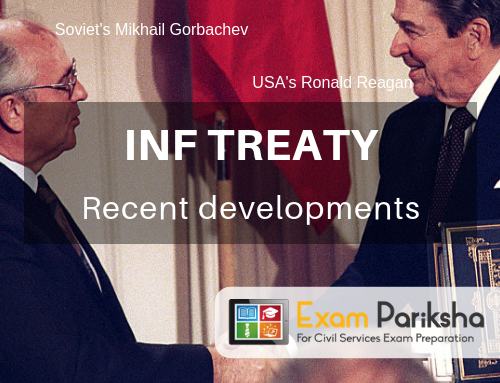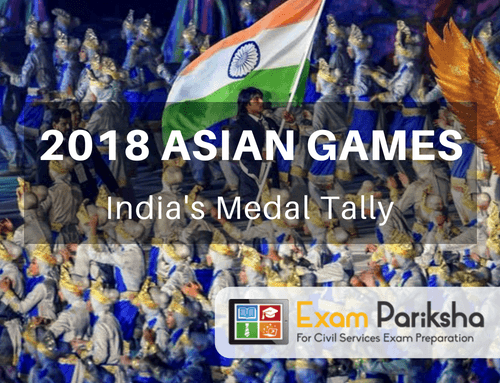List of all Indian Nobel Prize Winners – General Awareness / General Knowledge Study Material & Notes
India might be a land of billions but till date only eight Indians have been awarded the Nobel prize over the past century. As proud Indians, we should be aware of their names and contributions. This will also help in answering a few questions regarding these personalities in various examinations like the bank exams, SSC exams, UPSC civil services, State public service commission exams, NET exam to name a few. Since this is a topic of general knowledge, it can be asked in interviews also.
This list of Indians awarded Nobel prize is also very important after the 2014 Peace Prize to an Indian. Therefore, we are giving here short and quick notes about all these eight recipients of Nobel Prize from India.
1913 – RABINDRANATH TAGORE – Literature
- He was popularly known as ‘Gurudev’.
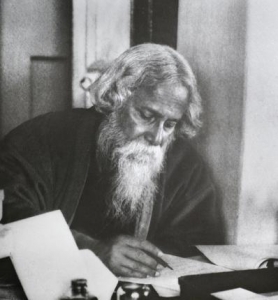
- He is known as a Bengali poet, a philosopher, a playwright, a composer, and a novelist.
- Tagore is also India’s most famous poet and writer till date.
- He received the 1913 Nobel Prize in Literature for his work “Geetanjali” which is a collection of poems, which shows his magical poetry that mesmerized millions.
- Rabindranath Tagore holds the distinction of being the first Asian and First non-European to be a recepient of the Nobel Prize in Literature.
- His two songs have been taken up as the national anthems of India(Jan Gana Mana) and Bangladesh.(Amar Shonar Bangla)
- Tagore laid the foundation of the famous Santiniketan in 1901 for imparting education in novel ways.
1930 – CHANDRASHEKAR VENKATA RAMAN – Physics
- C.V. Raman, as he is popularly known, won the Nobel Prize for his research in the f
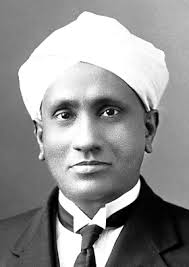 ield of scattering of light.
ield of scattering of light. - He was born in Tamil Nadu, and served as Professor of Physics at the Calcutta University.
- Raman had studied diffused light which was explained by him. He said it contained rays of other wavelengths- This is now known as the Raman Effect.
- This theory explains why a change occurs in the frequency of light when it is passing through a transparent medium. That some of the light emerges at a right angle to the original beam, that light is of other frequencies (known as Raman frequencies).
- These raman frequencies are a characteristic of the material.
- He also worked extensively in the field of acoustics and light.
1968 – Dr. HAR GOBIND KHORANA – Medicine
- Dr. Khorana was born in Punjab and went to UK after fellowship from Government
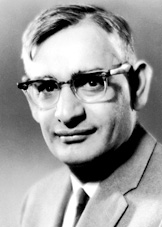 of India.
of India. - He received the 1968 Nobel Prize for Medicine for his study of Human Genetic Code and explaining its role in the process of Protein Synthesis.
- He passed away in 2011, while being the head of a laboratory at the Massachusetts Institute of Technology (MIT).
- He showed the mechanism followed by the cell nucleus to control the synthesis of proteins.
- He also prepared the first artificial copy of a yeast gene in 1970.
1979 – MOTHER TERESA – Peace Prize
- Mother Teresa was in Macedonia.in 1910. Her original name was Anjezë Gonxhe Bojaxhiu.
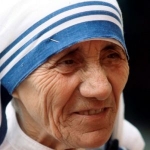
- She was a Roman Catholic religious sister of Irish order of Loretto. She came to Calcutta in 1929.
- She was awarded the 1979 Nobel Prize for Peace, for her service to people suffering from Leprosy and those dying destitutes through her charitable organisation ‘Nirmal Hridaya’.
- Her organisation helped the dying, the lepers and other people who had been left on the streets to die.
- She was also awarded Bharat Ratna.
1983 – Dr. SUBRAMANIAN CHANDRASHEKAR – Physics
- Dr. S. Chandrashekar, was an astrophysicist, born in India.
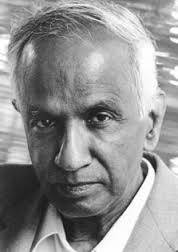
- He is the nephew of C.V. Raman, the nobel prize winner of 1930 in physics.
- Subramanyam Chandrasekhar was awarded the 1983 Nobel Prize in Physics for his theoretical studies of the structure and evolution of the stars. He shares the Prize with W. A. Fowler.
- His theory explains the final stages of evolution of stars. He basically determined that star cluster variables were similar in their nature to Brownian motion of particles suspended in liquids.
- He calculated the Chandrashekhar Limit: He said that after the ‘red giant phase’, a star becomes a mass greater than 1.4 times mass of the Sun (this limit is known as the Chandrasekhar limit) it collapses and then becomes a neutron star during a supernova explosion.
1998 – AMARTYA SEN – Economics
- Prof. Amartya Sen is first Asian to receive the Economics Nobel in 1998.
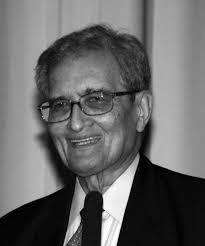
- He is presently one of the most respected economic thinkers in the world.
- He won the Nobel prize for his work in welfare economics particularly in areas of poverty, democracy, development and social welfare.
- He is best known as strong advocate of rationalism, secularism and welfare economics in India.
- His work on ‘Poverty and Famines: An Essay on Entitlement and Deprivation’ in 1981. Where he showed that declining wages, rising food prices, unemployment, and inefficient food distribution could lead to starvation of people.
<<<< Read about Geography Notes >>>>
2009 – Dr.Venkataraman Ramakrishnan – Chemistry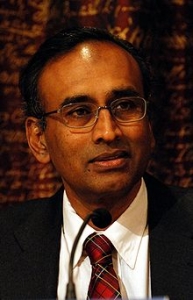
- Dr.Venkataraman Ramakrishnan, is an Indian born American who is a structural Biologist.
- He shares the 2009 Nobel Prize given for Chemistry with Thomas Steitz and Ada Yonath for mapping ribosomes.
- His work that got him the Nobel was his studies of the structure and function of the ribosome.
- He received Padma Vibhushan in 2010.
2014 – Kailash Satyarthi – Peace Prize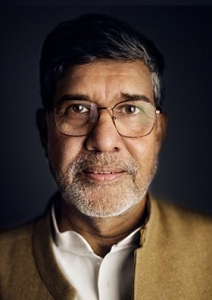
- Kailash Satyarthi, is an Indian activist against child labour.
- He shares the 2014 Nobel Peace Prize with Pakistani child activist Malala Yousafzai .
- He has founded “Bachpan Bacho Andolan” which works for protection of child rights in India.
- This Nobel peace prize is given to both of them for their struggle against the suppression of young people and children.



